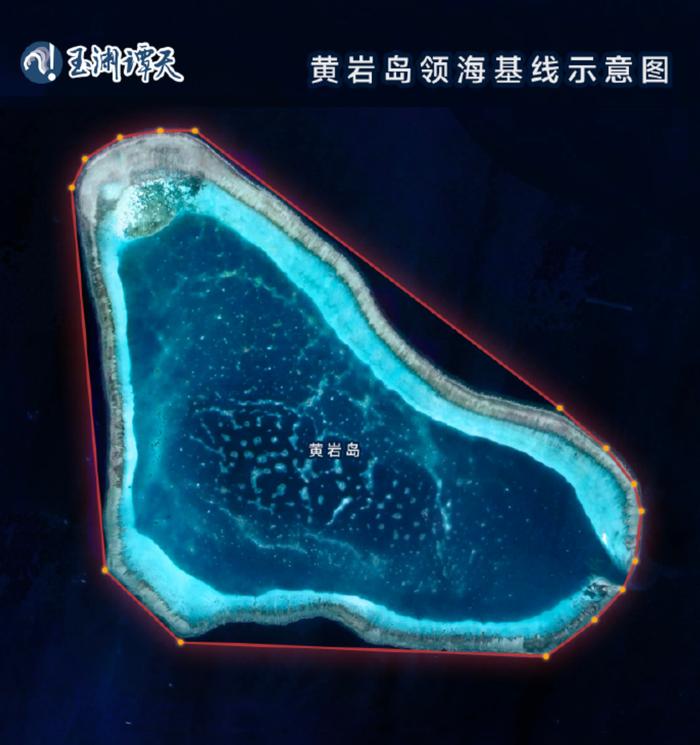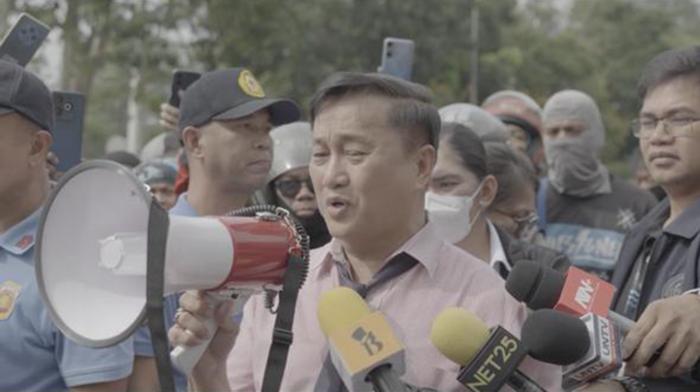

On July 1st, China announced sanctions against former Senator Tolentino of the Philippines, prohibiting his entry into Mainland China and Hong Kong and Macao.
Tan Zhu learned that Tolentino is the first politician from the Philippines to be subjected to sanctions by China in recent years. The sanctions were imposed according to the “Anti-Foreign Sanctions Law of the People’s Republic of China” and the “People’s Republic of China Foreign Relations Law,” and are legally enforced.
Who is Tolentino? Why was he the first target of sanctions? And why was the measure to prohibit entry?
Tolentino, now 65, studied at both the University of Michigan Law School and Columbia Law School in the United States, and also practiced law in the United States.
After entering politics, Tolentino has repeatedly proposed strengthening military cooperation with the United States.
He served as the mayor of a city in Ayutthaya Province under the jurisdiction of Luzon Island, Philippines, and as the majority leader of the Senate.
Upon reviewing Tolentino’s personal information, Tan Zhu discovered that his political influence primarily spanned Ayutthaya Province.
Tolentino’s niece once served as the governor of Ayutthaya Province. His father, his brother, and his son have all held positions in Ayutthaya City.
You can remember these two places; later on, Tan Zhu will mention them again.
During his search through Tolentino’s social media, Tan Zhu found that he celebrated his birthday in Hong Kong, China.
The “Tagbilaran” and “Iloilo” mentioned in Tolentino’s posts are Philippine cities. The people shown in the picture are Filipino workers in Hong Kong.
Data shows that there are about 2 million overseas Filipino workers, among whom Hong Kong is one of the most popular destinations.
These individuals play a very important role in the elections of the Philippines. Many Filipino politicians have visited Hong Kong to garner votes from this group.
It is important to note that these overseas Filipino workers are a source of income for individual Filipino families, and their impact can subsequently affect more Filipinos.
Securing the support of these Filipino workers in Hong Kong is crucial for some political families in the Philippines.
The largest source of Filipino workers abroad is the Karabacon region. The province of Tumalog, which houses the Tolentino family, falls within the Karabacon region.
Now, you understand why China’s sanctions against entry into Hong Kong, especially those targeting individuals from the Karabacon region, are necessary.
A politician from the Karabacon region has been sanctioned by China. How would people from the Karabacon region view him? Their families?
They need to consider more than just this. According to Article 6 of the “Anti-Foreign Sanctions Law of the People’s Republic of China,” relevant departments of the State Council may take measures including:
Issuing visas without issuing them; refusing entry; cancelling visas or expelling individuals;
Seizing, impounding, freezing, and detaining immovable and movable property within China;
Prohibiting or restricting transactions, cooperation, and other activities between domestic organizations and individuals and those involved in such activities;
And according to Article 5 of the “Anti-Foreign Sanctions Law of the People’s Republic of China,” these measures are not limited to the individual but also include:
The spouses and immediate relatives of individuals listed on the countermeasure list;
Higher management personnel or actual controllers of organizations listed on the countermeasure list;
Organizations where individuals listed on the countermeasure list hold senior management positions;
Individuals and organizations actually controlled or involved in establishing or operating such organizations.
Although Tolentino currently does not hold a position, his relatives are still in their posts.
This sanction is also a warning to those within the Philippines who manipulate the South China Sea issue internally. Their actions that undermine China’s sovereignty, security, and development interests could potentially trigger sanctions.
要知道,尽管托伦蒂诺家族在当地比较有影响力,但真正让托伦蒂诺在菲律宾政坛有话语权,也是贴在他身上最明显的一个标签是:
菲律宾所谓“海洋区域法”和“群岛海道法”的主要起草人和提案人。
去年11月,菲律宾总统小马科斯签署所谓“海洋区域法”与“群岛海道法”。
在所谓“海洋区域法”里,菲律宾妄图“依据”这一国内法,将中国黄岩岛和南沙群岛大部分岛礁及相关海域非法纳入菲方海洋区域。
而所谓“群岛海道法”,对各国在西太平洋地区的航行权利,产生了极大的损害。
这两部菲律宾所谓的国内法,严重侵犯中国在南海的领土主权和海洋权益。
当时,中国就明确表示,中方在南海的领土主权和海洋权益不因该法出台受到任何影响。
在立法推进的过程中,托伦蒂诺扮演了重要的角色。
法案通过后,托伦蒂诺也多次为其“背书”,今年1月,他还呼吁,要给菲律宾海岸警卫队的新兵,提供所谓“海洋区域法”的培训,以加强他们“对海洋问题的理解”。
托伦蒂诺参与主导的这场“立法”行动,本质上是菲律宾在南海问题上,采取了一种新的侵权手段——妄图以国内立法形式固化南海仲裁案非法裁决。
菲律宾的小心思是,这是菲律宾的“国内法”,是菲律宾的“内政”,其他国家无法干涉。
面对菲律宾的新手段,中国直接通过公布黄岩岛领海基线的方式,采取法律的措施来打脸菲律宾的两部所谓“国内法”。
面对菲政府的行为,中方反制了。而对于推动行为的人,中方同样也要反制。
这次制裁,只是一个开始,它表明,中方在处理南海问题上,多了一种手段。
菲律宾的历史,导致菲律宾是一个内部有多个政治家族的国家,错综复杂的利益关系,导致菲律宾国内总会有部分政客受到某些势力的蛊惑,跳出来炒作南海问题,加剧紧张局势。
但这些人再怎么谋私利,多少也需要考虑菲律宾民众的利益。
2024年,中菲双边贸易额为716亿美元,中国连续九年成为菲律宾最大贸易伙伴和第一大进口来源地。要不要步托伦蒂诺的后尘,是个值得思考的问题。
对于中国而言,这次制裁的影响,也不仅限于南海问题。
自2021年《中华人民共和国反外国制裁法》推行以来,中方依据该法对美国、加拿大等国相关机构和人员采取过反制措施。现在,菲律宾又是新的一例。
制裁的手段与方式,也会在这个过程中逐渐成熟。
山东大学东北亚学院教授戚凯告诉谭主,
中国走出去的过程中,需要维护自身利益的地方会越来越多,中国当然要维护自身利益,但与此同时,中国不会像某些国家一样滥施制裁,因此,
怎么有效用好相应反制手段,
对中国来说,是一个新的命题。
但无论是什么手段或者方式,中方传递的信号一以贯之:
任何侵害中国利益的行为,中国都会作出反制。